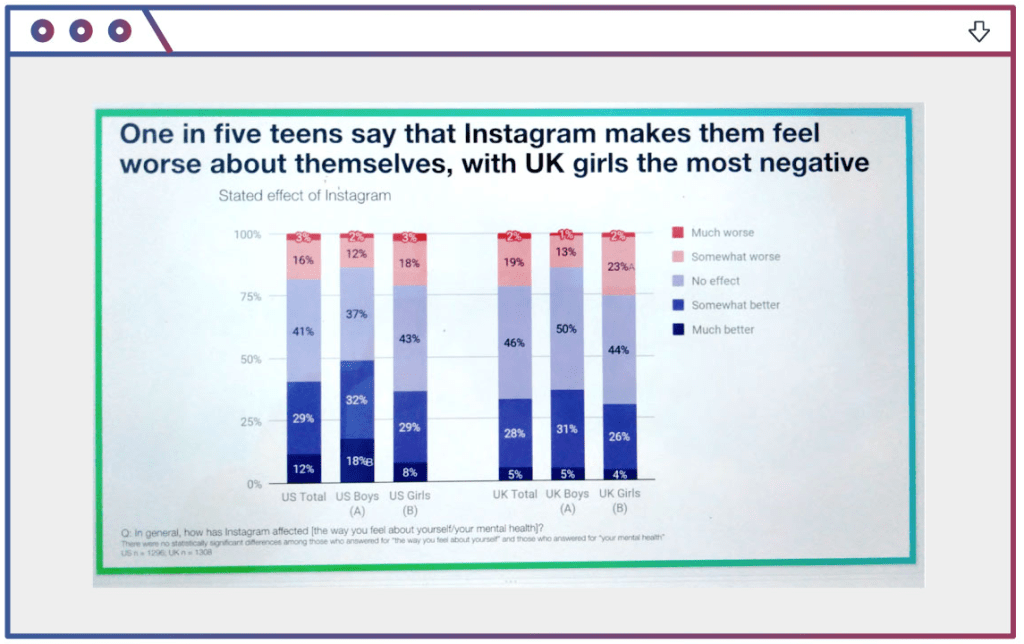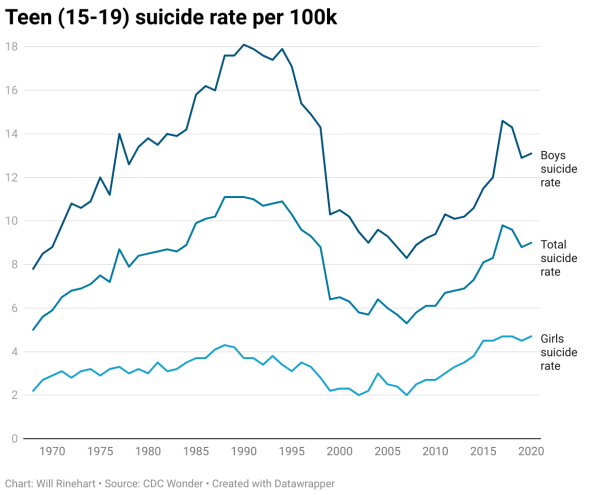Blaming Social Media For Suicide Is Taking The Easy, And Likely Wrong, Way Out
It's seems to have become accepted wisdom by many - including policymakers - that social media is dangerous for kids. But every time we look at the details, the data is lacking. This is not for a lack of trying, of course. There have been tons of studies that try to make the link, but most of them fail to turn up anything significant. It's not that there aren't kids who are depressed and/or suicidal. There are. And many of them are on social media. Because basically all kids are these days. But making the link is what's difficult.
Some of the people pushing this narrative just like to ignore inconvenient facts. Remember, of course, all the interest in Frances Haugen's leaked files from inside Facebook/Instagram. The headline story was that Facebook knew that Instagram made girls feel worse about themselves. But the reality was that the study showed that it made a much higher percentage feel better about themselves.

But that version doesn't make headlines.
Of course, one of the leading voices promoting this message is Jonathan Haidt, who has argued repeatedly that social media is leading to more depression and suicide. However, Taylor Barkley, over at the Center for Growth and Opportunity, recently had an interesting article that broke down the data. Haidt highlighted suicide statistics for teenagers from 2000 to 2020. And, from there, you see a slight, but noticeable uptick after 2015:
But... as Barkley notes, if you actually go past 2000, and look at the data from the CDC back to 1968, the story seems somewhat different:
In case the interactive embed is not working, here it is in image form:

So that's all kind of fascinating. Basically the suicide rate for teens was way higher in the late 80s and early 90s before dropping again in the late 90s and early 2000s. The current uptick is still mostly below the highs from a few decades ago, and obviously back then there really wasn't social media.
It's almost as if there might be something else going on. Social media may be having some impact here -- but the general data suggests there's likely a lot more at play, and a bunch of factors likely contribute to suicide rates.
And, as we've said before, social media is an easy scapegoat for politicians who don't want to do the work to understand the actual root causes of societal problems. This is why California is moving forward with its bill that states, upfront, that it's "proven" that social media is bad for kids. It's why next week the Senate will hold a hearing on the dangerous Kids Online Safety Act that would create universal surveillance of kids online, based on the unproven belief that social media is harming them.
These are being pushed by either deeply confused or deeply cynical politicians who simply don't want to actually do the work to figure out why suicide rates have ticked up recently, but are absolutely sure it must be social media.
There are real issues here. Figuring out why suicide rates for teens have gone up deserves actual careful study -- not grandstanding politicians with big ideas.